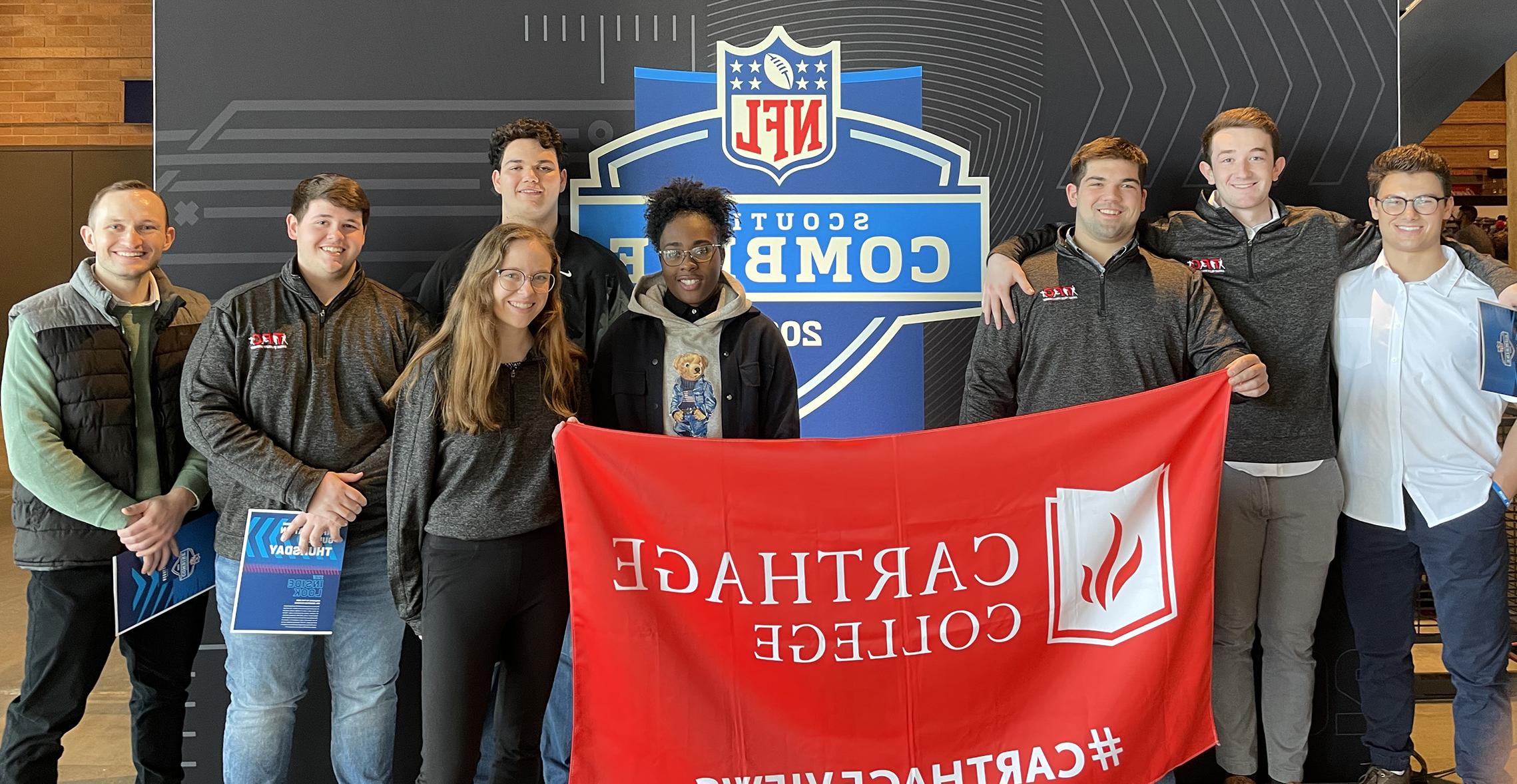Sport Business Course Descriptions
Scroll down to read descriptions of the sport business courses offered at Carthage, or click on these links for additional resources:
Principles of Sport Business
MGT 1050 / 4 credits
This is the introductory course for students in the sport business minor. The sports industry is rapidly evolving, establishing itself as one of the more prominent industries and business enterprises globally. Therefore, future sport business practitioners must understand the industry’s fundamental structures, governance, careers, and business processes. This course introduces students to such structures, careers, and processes. The curriculum teaches students the organizational structures and business processes in all levels of sports, namely focusing on professional sports, intercollegiate athletics, esports, high school sports, youth sports, and amateur sports. Students are exposed to different career opportunities in sports. This course also incorporates frequent discussion of current events in sports business.
Sports Business Development & Operations
MGT 2500 / 4 credits
Sport is a tremendous business enterprise whose organizations provide immense opportunity for entertainment and economic growth. This course will explore the functions of a sports organization in creating revenue, economic development, and selling a product to many consumers and stakeholders. In exploring the business functions of a sports organization, students learn about business development, such as managing capital and investing in product development specific to the context of sport via regular competition (i.e., regular season competitions) or singular events (i.e., hosting concerts or singular athletic events). Students will integrate this understanding of business development with theory and topics related to event and facilities management. Expanding upon sports business development, such topics include sport-specific theories and contexts related to marketing, sponsorship, sales, and finance. This course evaluates the current landscape of sports while also investigating the future of the sports industry and new business development opportunities such as esports.
Sports Media
CDM 2900 / 4 credits
This course will be a broad survey of sports and the communication media. The course will explore the history of media and sport, sports journalism, sports marketing, and technology’s influence on the sports marketplace. The course is a study of sports media, as well as a course where students write sports journalism and investigate careers in sports organizations and media.
Sport Law
MGT 3500 / 4 credits
With a wide array of professions in the sports industry and its ever-changing landscape, it is necessary for sports practitioners to proactively apply and understand various laws, statutes, and regulations. In addition to providing students with the skills and resources to interpret the law, this class provides a comprehensive overview of specific legal topics which pertain to sports and the sports industry. This includes discussions of contract law, negligence, intentional torts, Title IX, Title VII of the Civil Rights Act of 1964, constitutional law and sport, federal anti-trust law, collective bargaining agreements, legalities centered on facilities management, sports governance, and more. Students will explore significant case law, statutes, and U.S. Constitutional amendments, which explain and direct best practices for sports practitioners.
Sport Organization History & Social Impact
MGT 3900 / 4 credits
With the growing prominence of the sports industry, it’s necessary to understand the important role sports (and their organizations) plays in society, as sport has a significant economic and social impact. This embraces notions of how society is represented through sport and vice versa and the historical significance of sport in society. This course provides students with a circumstantial understanding of theories related to sports sociology and history and how these theories dovetail in explaining sport’s social and economic impact on communities. Topics discussed include the historical formation and growth of major professional sports leagues (i.e., NFL, NBA, WNBA, MLB, NHL, MLS, and NWSL) and intercollegiate sports (i.e., NCAA) both nationally and internationally. The historical topics provide a foundation for understanding the relationship between sport and society and the role of athletes and sports organizations in serving corporate social responsibility. Furthermore, this class explores how sports organizations may serve as drivers of positive social change within their communities and society and what impact this has on a local economy and business.
Advanced Topics & CASE Development in Sport
MGT 4200 / 4 credits
Considering the constantly changing nature of the sports industry, it is necessary for professionals to be researching and exploring new business opportunities within the industry. Therefore, future sports practitioners must be able to conduct their own research and to be able to disseminate their findings and recommendations through a carefully and professionally articulated analysis. This course allows students to develop case study research, which is relevant to creating new perspectives and practices in the sports industry. Through this course, students may collaborate with a sports organization, a practitioner in sport, or other business faculty to write a case study that will be published independently, with high-quality CASE work being published in a new, forthcoming Sports Business CASE study journal. Case research incorporates an in-depth and integrated (through practice) approach to understanding complex issues. This journal will be published by the institution. Students work in groups to develop and research these CASE studies, allowing them to acquire skills and practice working in a high-performing team. Students must deliver an individual CASE study, teaching note, and instructor guide. This course will develop 27 student-writing skills through its writing-intensive nature. Topics of research will focus on innovation and development in the sport business. This course features an on-site experiential learning component.

